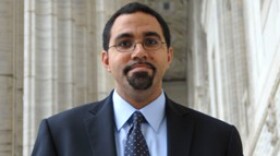As I reflect on and celebrate Pete Seeger’s life, I’m reminded that in the great tradition of American folk music, the lyrics, for the most part, remain constant while their applicability often evolves with the changing times. The revising and honing of folk songs keep them relevant, and serve as catalysts for social change from one generation to the next.
One example is “Where Have All the Flowers Gone?” which Pete wrote in 1955, inspired by a novel he was reading about the Russian revolution. Its anti-war message grew in popularity during the Vietnam War. Pete’s timeless refrain — “Oh, when will they ever learn?" — later reflected the feelings of those protesting the wars in Iraq and Afghanistan.
That sentiment — “Oh, when will they ever learn” — speaks to society’s failure to learn from history and to repeat the mistakes of the past. Those lyrics are on my mind not only because of Pete’s recent passing, but because in education we regularly see bad ideas dusted off and trotted back out as if they were new.
A case in point is the misguided merit pay scheme included in this year’s proposed Executive Budget.
Merit pay dangles bonus money in front of teachers under the mistaken, and frankly insulting, assumption that somehow it will lead teachers to teach harder, faster or better--or some other such nonsense. We see it in higher education, too: SUNY has a similar bonus program which has benefitted a few, but in uneven and often unwarranted ways--and at the detriment of the majority.
The current governor — like governors before him — fails to understand that collaboration and teamwork are essential to any plan aimed at improving student performance. Teachers working together in a collegial environment, sharing successful techniques so all students benefit, is at the core of every successful school.
Of course teachers want to be compensated fairly, but they see merit pay as a scheme that pits colleague against colleague in a “survival of the fittest” competition while subverting the sense of community needed for the students in their schools to succeed.
Merit pay schemes almost always ignore the many factors beyond a teacher’s control that influence student achievement. They rarely have enough money to even come close to being able to reward all the teachers who meet the established criteria, and consistently suffer from criteria that is often subjective and flawed. The current merit pay proposal included in the Executive Budget, for instance, is built on the shakiest of foundations, rewarding teachers whose students scored best on state standardized tests--tests that have been discredited as meaningless and useless.
Are there ways to provide additional compensation to exceptional teachers in a fair and equitable way that provides value for schools, communities and taxpayers? Of course there is!
Most promising is the idea of a career ladder— a programs where skilled classroom teachers can earn stipends by taking on additional responsibilities that add to student learning, help improve teacher practice and benefit the entire school community.
Already, about 100 school districts provide stipends for teachers who earn national certification. Others provide additional pay to experienced teachers who agree to mentor new teachers, teachers who serve as lead teacher in their grade or school, or those who write curriculum or provide advanced training for other teachers.
Few artists are as committed to improving the lot of every child as Pete Seeger was. He understood the importance of education and the importance of learning as a lifelong adventure--one he modeled for all of us.
But he also knew that life's lessons are often ignored and it's errors often repeated.
Pete's words are a warning that will likely be repeated for decades and decades:
“Oh, when will they ever learn? When will they ever learn."
Richard C. Iannuzzi is president of the 600,000-member New York State United Teachers.
The views expressed by commentators are solely those of the authors. They do not necessarily reflect the views of this station or its management.




